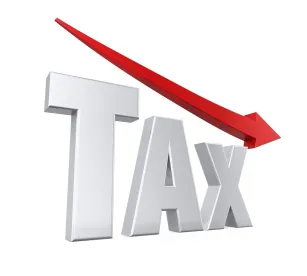On March 23, 2022, the US Tax Court announced new proposed rules for practicing before it. The Court proposed three new rules, amendments to existing rules and changes to conform the existing rules to various forms. The proposed changes also reflect the Court’s move toward conformity with the Federal Rules of Civil Procedure.
OVERVIEW OF THE NEW PROPOSED RULES
The new rules include Rule 63, Rule 92 and Rule 152. Rule 63 provides rules to parties seeking to intervene in a Court proceeding who have an unconditional right and a conditional right to intervene by a federal statute.
Rule 92 provides rules to identify and certify an administrative record in certain actions. The explanation to the proposed rule states that proposed Rule 92 is meant,
[T]o fill a gap in the Court’s Rules of Practice and Procedure. Although the Court has longstanding Rules governing the submission of the administrative record in declaratory judgment cases, see Title XXI of the Court’s Rules, the Court has not adopted a rule of procedure or a uniform process governing the submission of the administrative record to the Court in other actions where judicial review is normally limited to the administrative record or where judicial review requires an examination of the administrative record and other relevant evidence, as appropriate.
Rule 152 provides a uniform rule for the Court to accept briefs filed by amicus curiae. The explanation to the rule states that proposed Rule 152 is a corollary to Rule 29 of the Federal Rules of Appellate Procedure and Rule 7(o) of the local rules for the US District Court for the District of Columbia. We previously discussed amicus briefs in the Court, and this change is a welcome development to provide specific procedures in the area.
NOTABLE REVISIONS TO EXISTING RULES
Proposed Rule 21, Service of Papers, makes service of pleadings through the Court’s electronic system the default method for serving papers upon the Court and opposing parties.
Proposed Rule 23, Form and Style of Papers, omits all prefixes (e.g., Mr., Ms.) from pleadings. The amendment would also permit the use of a typed written name on a pleading that is filed electronically with the Court to constitute that person’s signature.
Proposed Rule 70, Scope of Discovery, would add the following rule:
Discovery must be proportional to the needs of the case, considering the importance of the issues at stake in the action, the amount in controversy, the parties’ relative access to relevant information, the parties’ resources, the importance of the discovery in resolving the issues, and whether the burden or expense of the proposed discovery outweighs its likely benefit.
Additionally, the amendment proposes that any information withheld under a claim of privilege must be expressly made and describe the nature of the documents, communications, etc., not produced to enable the other party the ability to assess the privilege claim. The rule also adds provisions for the return of privileged documents that were inadvertently disclosed to the opposing party during discovery.
Proposed Rule 147, Subpoenas, replaces existing Rule 147 in its entirety to track Fed. R. Civ. P. 45 more closely. One notable change is that the party issuing the subpoena must serve a copy of the subpoena on each party. This proposed rule would clear up confusion (which we previously discussed) as to whether a party could issue a subpoena to a third party without providing notice to the other party.
Practice Point: If you practice regularly before the Tax Court like we do, changes in the rules of practice and procedure may alter your case strategy. Litigants should carefully consider these proposed changes, including whether to provide comments, as we expect them to become final in the near future. The Court invites public comments to the proposed rules by May 25, 2022.




 />i
/>i
